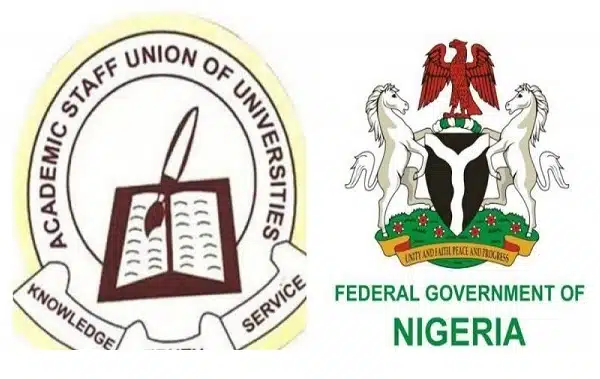The Academic Staff Union of Universities (ASUU) has once again issued a stern ultimatum to the Federal Government of Nigeria, demanding immediate action on its long-standing issues within 10 days or risk the resumption of a full-scale industrial strike. The warning, which comes barely weeks after the union suspended its two-week warning strike, has reignited national concern over the fragile state of the Nigerian tertiary education system.
According to the union’s leadership, the government has failed to fulfill the promises made during earlier negotiations, leaving lecturers and students frustrated as universities struggle under the weight of poor funding, unpaid allowances, and outdated infrastructure.
Background to the Dispute
ASUU’s standoff with the Federal Government is not new. The union has, for decades, been at the forefront of demands for improved funding and revitalization of Nigeria’s public universities. In 2009, ASUU and the Federal Government signed an agreement that covered critical areas such as lecturers’ welfare, infrastructure development, research support, and the general improvement of academic conditions in universities.
However, more than a decade later, ASUU maintains that the government has largely failed to implement the key provisions of that agreement. The repeated cycles of promises, partial payments, and unfulfilled commitments have led to recurring strike actions that paralyze academic activities and disrupt students’ education year after year.
The most recent warning strike, which ASUU suspended in October 2025, was meant to give the government a final opportunity to demonstrate good faith. The union allowed a one-month window for tangible progress to be made. With little to no visible action, ASUU has now drawn a hard line—issuing a 10-day ultimatum to the government.
ASUU’s Core Demands
The union’s demands are rooted in the need to strengthen the Nigerian university system and ensure fair treatment of academic staff. Among the key issues highlighted are:
- Implementation of the 2009 ASUU–FGN Agreement:
ASUU insists that the Federal Government must fully implement the long-standing agreement, which includes provisions for university autonomy, improved funding, and academic development. - Payment of Outstanding Salary Arrears and Earned Academic Allowances:
Many lecturers are still owed months of salaries and arrears accumulated during past industrial actions. The union also demands the immediate payment of earned academic allowances that have been pending for several years. - Revitalization of Public Universities:
The poor state of infrastructure in Nigerian universities has been a recurring concern. ASUU has repeatedly called on the government to invest in laboratories, libraries, hostels, and research facilities to bring them up to global standards. - Payment of Withheld Salaries and Deductions:
The union wants the release of all withheld salaries and remittance of third-party deductions, including cooperative dues and pension contributions, which have been withheld for months. - End to Victimization of Union Members:
ASUU alleges that some of its members have faced intimidation and unfair treatment from university managements due to their participation in union activities. The union insists on an end to such practices.
Government’s Response and Ongoing Tensions
While the Federal Government has consistently pledged its commitment to resolving the lingering issues, ASUU argues that the promises have remained largely rhetorical. The union’s President, Prof. Christopher Piwuna, stated that despite earlier assurances, no substantial step has been taken toward implementing the agreements.
He noted that although the government made partial payments of arrears in recent months, such actions were merely symbolic and failed to address the structural issues affecting the university system. Prof. Piwuna described the government’s approach as “a cycle of half-measures,” stressing that Nigeria’s education sector cannot thrive under temporary interventions.
The government, on the other hand, has attributed the delays to economic challenges, claiming that the country’s fiscal constraints limit its ability to meet all financial demands at once. However, ASUU maintains that this excuse is no longer tenable, especially as government revenue figures have reportedly improved in recent quarters.
Implications of the Looming Strike
If ASUU proceeds with its threat to resume strike action, the consequences could be devastating for the already stretched university system. Students, who have endured multiple disruptions in recent years, may once again face extended delays in academic calendars. Final-year students awaiting graduation, those preparing for national service, and prospective postgraduate candidates could all be affected.
Parents and guardians have also expressed growing frustration, as each round of industrial action adds financial and emotional strain. The potential strike could also dampen Nigeria’s reputation in global academic circles, further pushing the nation’s education system behind its African peers.
Beyond the universities, the strike could have ripple effects on the nation’s economy. With thousands of students forced to remain idle, productivity levels could drop, and youth restlessness may increase.
Calls for Lasting Solutions
Education stakeholders have called on both parties to prioritize dialogue and find sustainable solutions rather than resorting to strikes that often yield temporary gains. Analysts argue that the Federal Government must go beyond short-term promises and create a binding framework that ensures accountability and continuity in funding.
They also urge ASUU to remain open to negotiation, emphasizing that constant industrial action, while sometimes necessary, often punishes the very students the union seeks to protect.
Experts further recommend that the government establish an Education Trust Implementation Panel, tasked specifically with monitoring and enforcing the provisions of all agreements reached with university unions.



